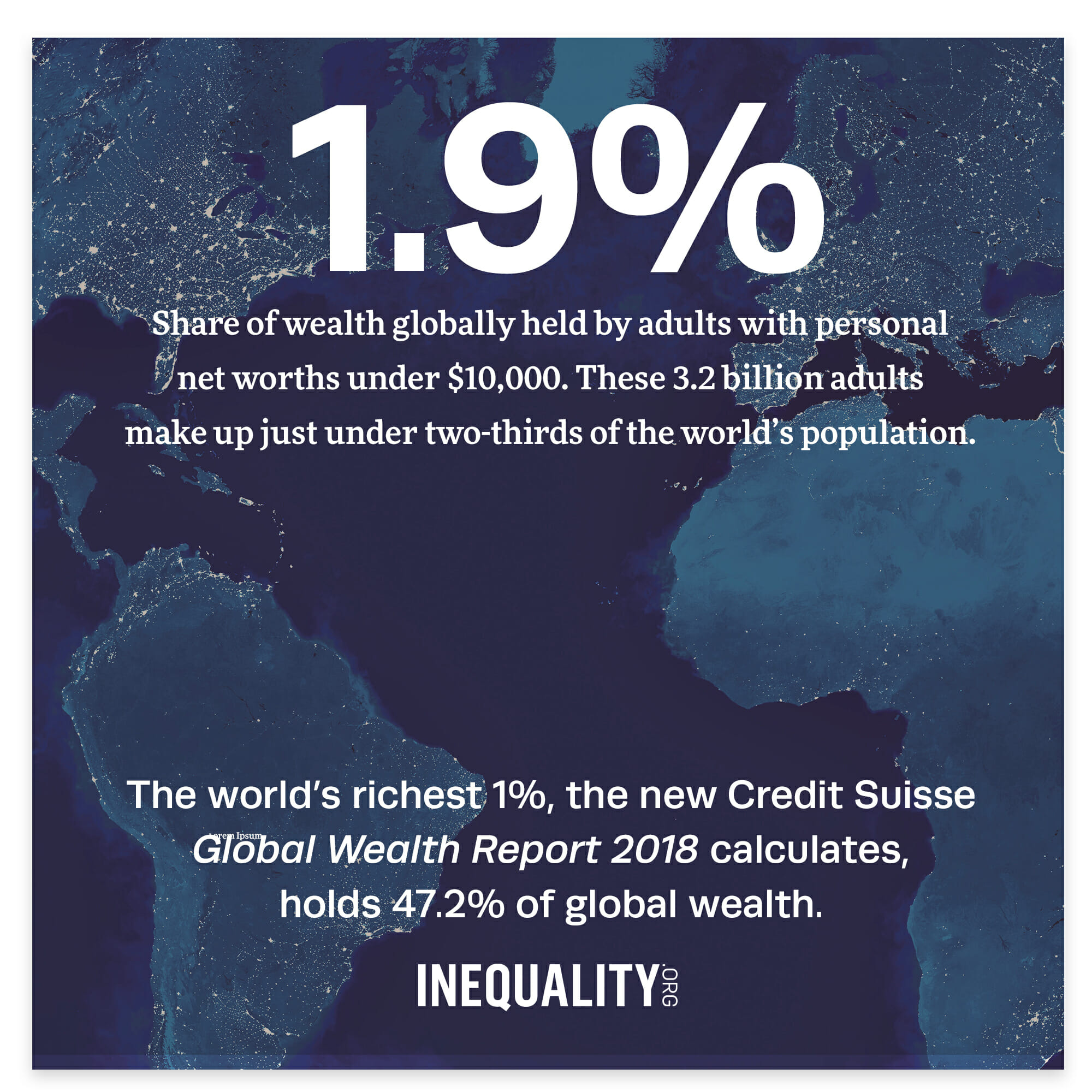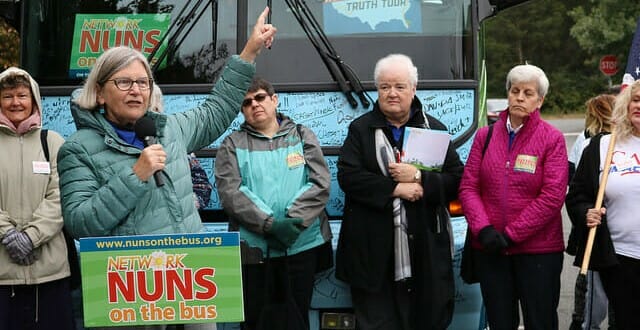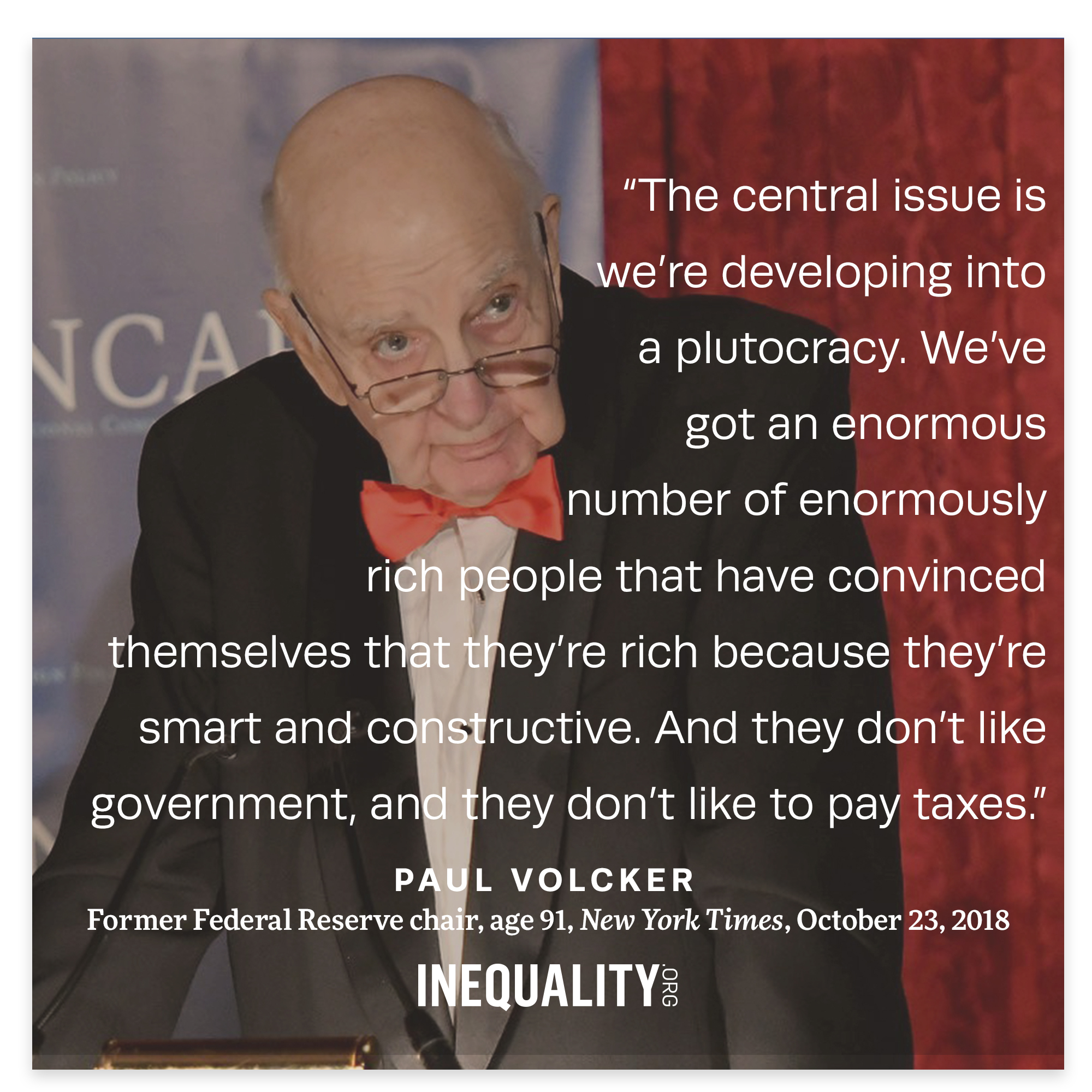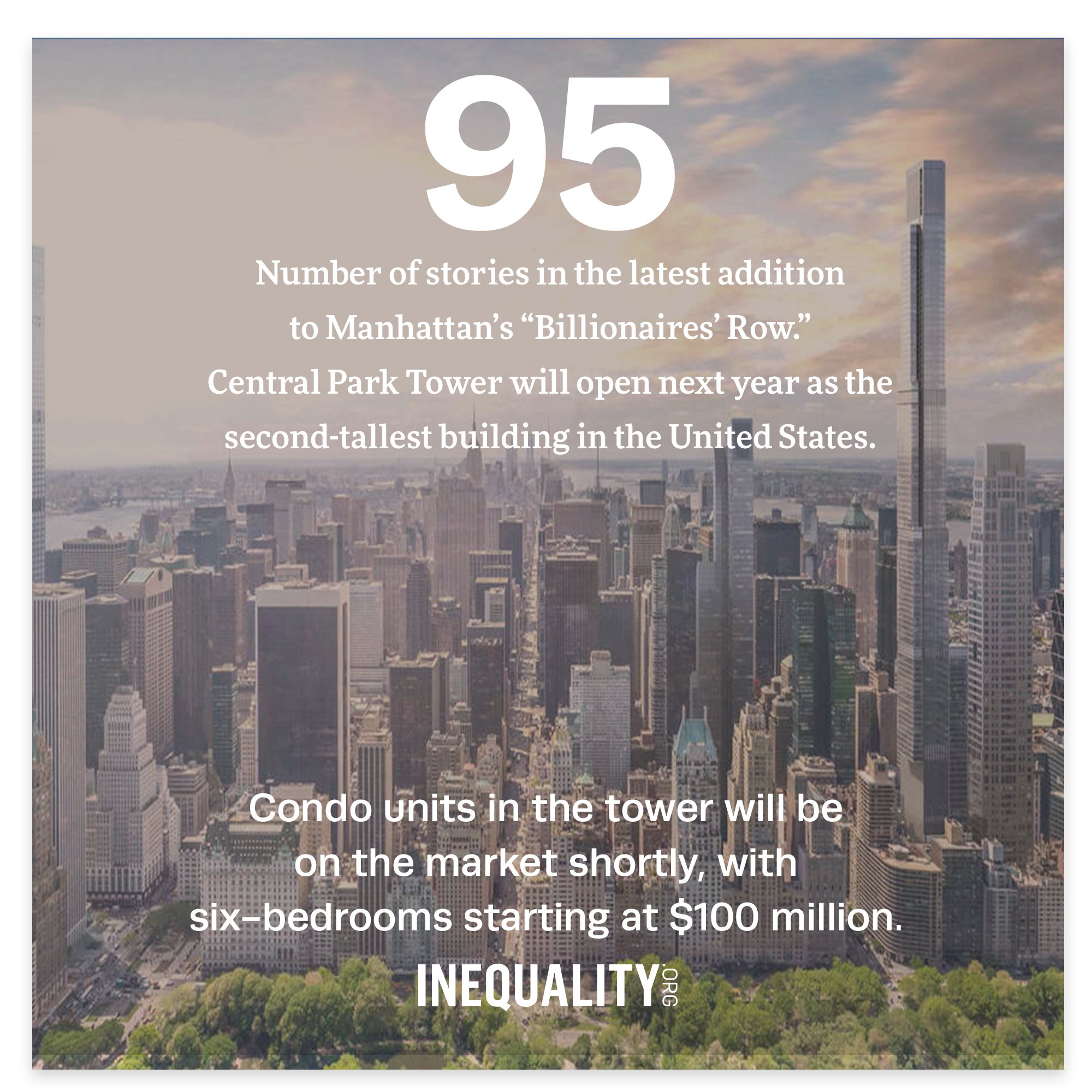Americans have been pushing back at the Trump administration at every opportunity, from our workplaces to our borders. Next week, that pushback shifts to the ballot box.
|
THIS WEEK
|
We’ve had a whirlwind two years since the 2016 U.S. elections, and the Trump administration continues to forge forward with disastrous policies that protect and enrich our elites while hurting the most vulnerable among us. But Americans have been pushing back at every opportunity, from our workplaces to our borders.
Next week, on November 6, that pushback shifts to the ballot box, and inequality will figure mightily in the decisions voters make. On the ballot will be a host of local and state initiatives that target the concentration of income and wealth and an even greater number of candidates who have run on platforms that press the case for greater equality.
We’re keeping an eye on all these contests as the midterm elections near and invite you to check out our election preview. And if you’re following an inequality campaign that we’ve missed, please let us know. Thanks!
Chuck Collins, for the Institute for Policy Studies Inequality.org team |
|
|
|
|
INEQUALITY BY THE NUMBERS
|
 |
|
|
|
|
|
|
FACES ON THE FRONTLINES
|
 |
Activist Nuns Log 5,600 Miles for Tax Justice
|
| Look out Mar-A-Lago. The renowned activists known as the “Nuns on the Bus” are headed your way. And they're just as ticked off about the Trump-Republican tax reform as they were when they launched their cross-country “Tax Justice Truth Tour” in California over three weeks ago. The nuns are making their way to Trump’s members-only Florida resort with a message for the president. “The Republican tax law is cutting the heart out of our nation,” Sister Simone Campbell told a crowd in Washington, D.C. last week. “We’re on the road to hold members accountable for their votes.” Inequality.org co-editor Sarah Anderson has more. |
|
|
|
|
WORDS OF WISDOM
|
 |
|
|
|
|
|
PETULANT PLUTOCRAT
OF THE WEEK
|
 |
| In Australia, ‘Sound and Fury, Signifying Nothing’ |
| In Australia, people still get angry about CEO pay packages that would draw a ho-hum in the United States, and that has John Mullen, the board chair at Aussie telecom giant Telstra, more than somewhat bent out of shape. At Telstra’s annual meeting earlier this month, 62 percent of the company’s shareholders gave an advisory thumbs down to the $4.5 million the Telstra board has okayed for CEO Andy Penn. That brought Mullen to his feet for a “furious” retort. He told the Telstra board’s critics to “get real” about the tough business climate the company is facing. Corporate directors, he went on, don’t “sit around like witches of Macbeth scheming as to how they can manipulate incentive schemes to give improper benefit to already excessive executive salaries.” Mullen’s “staunchly” delivered defense of CEO Penn, who this past June announced a plan to lay off 8,000 workers, left critics distinctly unimpressed. Last year, economist Jason Murphy points out, Aussie CEO pay overall increased six times faster than worker wages. |
|
|
|
|
GREED AT A GLANCE
|
 |
|
|
|
|
|
|
TOO MUCH
|
 |
| Waffles and Our Penalty for Tolerating Inequality |
| How much does the “privilege” of living in a deeply unequal nation cost ordinary Americans? Some new numbers from Belgium can help us tally the total. The numbers appear in the latest edition of the Credit Suisse Global Wealth Report, an annual report that rates as the best overall analysis of global wealth that the worldwide financial industry produces. Inequality.org co-editor Sam Pizzigati, author of The Case for a Maximum Wage, has more. |
|
|
|
|
|
|
MUST READS
|
This week on Inequality.org
David Wallis, Wealthy Seniors Don’t Need Discounts, but All Low-Income People Do. It’s time to retire movie, hair salon,and other discount programs for senior citizens and redirect the savings to low-income people of all ages.
Negin Owliaei, Teachers Promise a Show of Power at the Polls. Educators and their allies hope to turn momentum from the strikes into gains at the ballot box.
Jake Johnson, Billionaires Made More Money in 2017 Than Any Other Year in History. The past 30 years have seen far greater wealth creation than the original Gilded Age, reports the Swiss bank UBS in its latest annual study on global billionaires.
Elsewhere on the web
Bo Rothstein, How the Trust Trap Perpetuates Inequality, Scientific American. Corruption, distrust, and inequality reinforce one another in a destructive loop.
Larry Elliott, To trust each other again, we need to become more equal, Guardian. The gap between rich and poor is driving a climate of mistrust that harms us all.
Sophia Paslaski, Hard data about social programs and inequality, Concord Monitor. Countering right-wing myths about social safety-net spending.
Ellen Sheng, Silicon Valley's dirty secret: Using a shadow workforce of contract employees to drive profits, CNBC. The trend toward contract work as still another source of widening inequality.
Andrew Van Dam, It’s better to be born rich than gifted, Washington Post. Wealth, new genomic evidence shows, trumps intellectual talent.
Gary Rivlin, The Whistle Blower: How a Gang of Hedge Funders Strip-Mined Kentucky’s Public Pensions, Intercept. Wall Street’s easiest rich-get-richer gameplan.
Chris Hedges, The Rule of the Uber-Rich Means Either Tyranny or Revolution, TruthDig. The uber rich cannot see the world from anyone’s perspective but their own.
Christian Weller, Racial Wealth Gap Much Smaller Among Union Members, Forbes. The stats make a clear case for encouraging unions.
Calvin Exoo, How Billionaires Bought Kavanaugh’s Seat on the Supreme Court, Truthout. America’s super rich have created a career chain that guides conservative jurists from conservative law schools to seats on our highest courts. |
|
|
|
|